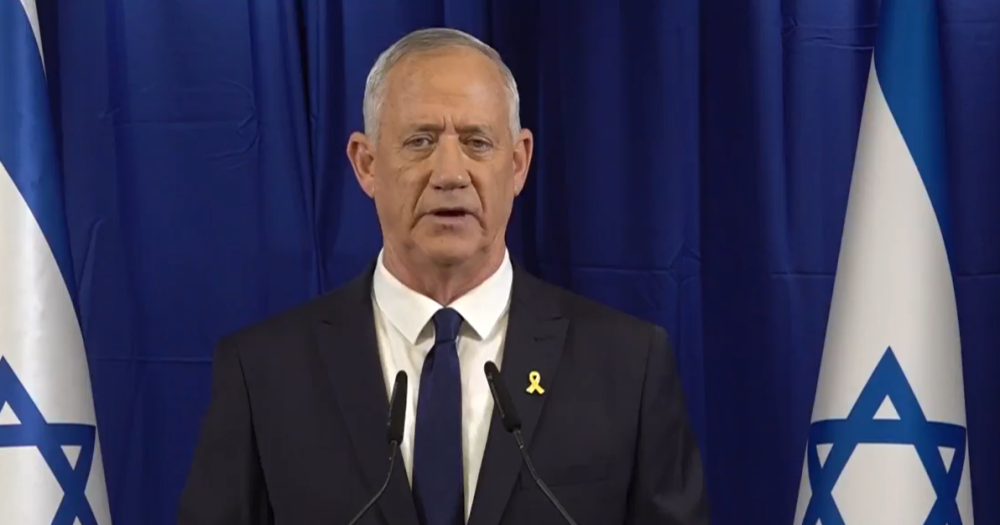Israeli minister Benny Gantz announced his resignation from the Israeli government on Jun. 9, citing policy disagreements with Prime Minister Benjamin Netanyahu.
Gantz was also a member of a three-man key decision-making "war cabinet" formed shortly after the Oct. 7 attacks, whose other members are Netanyahu and minister of defense Yoav Gallant.
In resigning from the Israeli government, Gantz also withdrew the support of his political party from Netanyahu's coalition government.
Reason for the split
In a televised news conference in Tel Aviv, Gantz asserted that Netanyahu "is preventing (Israel) from advancing toward true victory".
"That is why we are leaving the emergency government today, with a heavy heart but with full confidence," he added.
Gantz also told Netanyahu to "not let our nation tear apart”, calling on him to set a date for elections.
In May, Gantz demanded that Netanyahu announce a clear post-war strategy for Gaza and gave a deadline of Jun. 8, which was not met.
Israel has been accused repeatedly of reducing the Gaza Strip to a wasteland and triggering a humanitarian crisis among its two million residents, while carrying out its relentless military operation against Hamas.
But it has not mentioned any plan to manage and support the ravaged Gaza Strip or its residents, if or when the war finally ends.
The Guardian reported that Netanyahu ignored Gantz's ultimatum, even after the latter threatened to resign.
Reactions from Israeli politicians
Opposition leader Yair Lapid voiced approval of Gantz's decision, saying on social media it was “important and right”.
Those in the Israeli government were less upbeat.
"This is the time for unity and not for division," Netanyahu said on X shortly after Gantz's resignation, beseeching him not to leave the emergency government.
Gantz is a political rival of Netanyahu and a former chief of staff of the Israel Defense Forces (IDF).
He is seen as a counterbalance to the far-right elements in the current Israeli government.
Reuters reported that finance minister Bezalel Smotrich delivered a statement saying Gantz was giving Israel's enemies what they want.
Meanwhile, far-right leaning national security minister Itamar Ben-Gvir, who famously described Palestinians as "human animals", was quick to demand he replace Gantz in the war cabinet.
A blow to Netanyahu
Reuters noted that Gantz's withdrawal is not catastrophic for Netanyahu, as even after the the loss of Gantz's party, Netanyahu's coalition still controls 64 of the 120 seats in Israel's parliament.
However, the loss of Gantz's support highlights the increasing isolation of Netanyahu's government.
Gantz is regarded as a moderate figure in Israeli politics: He is well-liked in Washington and helped soften Israel's image even as the bloodshed in the Gaza Strip continued.
Additionally, Netanyahu may now be forced to rely more on the right-wing parties in his coalition to remain in power, which may result in even more hardline, aggressive policies that worsen and prolong the war.
Smotrich and Ben-Gvir, two such right-wing politicians, threatened to resign and cause the governing coalition to collapse if Netanyahu agreed to a ceasefire proposal last week, in an apparent attempt to pressure Netanyahu to continue the war, according to BBC
Netanyahu is deeply unpopular among Israelis, especially due to the perception that he had allowed the Oct. 7 attacks to happen, his failure to ensure the safe return of all the hostages kidnapped during the Oct. 7 attacks, and the corruption charges he still faces.
Top photo via Benny Gantz/Facebook
If you like what you read, follow us on Facebook, Instagram, Twitter and Telegram to get the latest updates.



